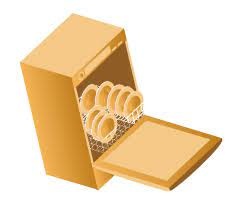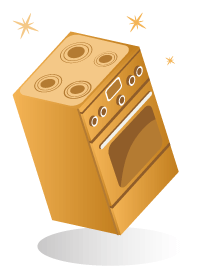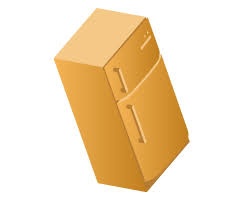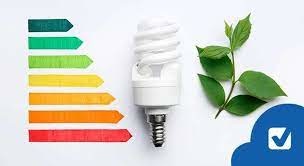How to Save Money on Cooking

Cooking large meals for events (or just to ration through the week) doesn't have to mean big energy bills! These tips will help keep your energy bills cool even as your kitchen heats up.
Be Prepared
Probably the most effective thing you can do to save energy is to get in the habit of preparing your food before you start cooking. Make sure everything is defrosted, chopped, seasoned, trimmed, and otherwise ready to go before you fire up the oven or stove. Not only will this save you money, it will also save you the stress of burning onions or garlic as you chop madly to catch up.
That being said, if you’re cooking something in the oven for more than an hour, it’s probably not necessary to preheat the oven.

When defrosting frozen food, try to do it in the refrigerator instead of in the microwave. Just make sure to keep frozen food covered as it thaws, as the released moisture can also make your fridge work harder.
Be Appliance Smart
Especially when it comes to cooking or reheating smaller quantities of food, try to use more energy-efficient alternatives to the conventional oven. Both a microwave and a toaster oven use about half as much energy than a standard oven when heating food, and take considerably less time to heat up.

Be a Neat Freak
Keeping the burner pans (the metal pans that catch grease, food and boiled water) on your stove clean isn’t just so that they look good – their shine helps reflect heat up to the cookware.
Similarly, if you have a self-cleaning oven, make sure to run its self-cleaning cycle about once a month – always after you’ve used the oven, which will ensure that you use less energy (since the oven will already be hot).
Save On Your Energy RatesDepending on where you live in the US, you may be able to pay a save on the rate you pay for your electricity and/or gas supply by choosing an energy plan from an alternate supplier. Alternate suppliers offer a wide variety of price options and competitive rates.
Ditch the Double
Do you really need that second refrigerator or freezer? According to the American Council for an Energy Efficient Economy, running a second fridge or freezer can cost you anywhere between $97 and $130 per year in electricity use. If you are getting rid of a second appliance, make sure to properly recycle it, and save 5,500 to 20,000 pounds of greenhouse gas emissions.

Stop the Leaks
If you have a leaky faucet, fix it straight away! Not only is it wasting water, but it can cost you up to $35 in electricity or natural gas.
Similarly, make sure your fridge is sealed tightly and isn’t leaking cold air, which will make it work harder than it has to. Consider replacing the seals if you notice that the door has difficulty closing.
Size Matters
Using correctly-sized pots and pans on the stovetop matters – and can save you around $36 annually for an electric range and about $18 for gas.
Cover Up
Use a lid when cooking – not only will it help food cook faster, but it will keep the kitchen cooler. And while it may be tempting, try not to peek in the oven to check on the progress of what’s cooking. The temperature inside an oven can drop by as much as 25 degrees each time the door is opened, which means that your oven will work harder than it has to in order to maintain its temperature and will take longer to cook your food.

Spend a Little, Save a Lot
If you don’t have some already, get some ceramic and/or glass dishes to use in the oven. Using glass or ceramic dishes will enable you to turn down your oven’s temperature by about 25 degrees, with your meal cooking in the same amount of time.
If you’re upgrading your pots and pans, take a moment to think conductivity. Flat-bottomed pans are generally the way to go, and can be up to 50% more efficient in boiling water compared to a warped-bottom pot. Materials matter, too: copper-bottomed pans heat up faster than regular ones.
Worth the Investment
Renovating soon? Don’t forget energy efficiency when considering what type of appliances to buy for your kitchen. If you can afford it, try to go with Energy STAR models for all of your appliances, which will guarantee that you’ll be using the most energy-efficient models on the market.

If you’re in the market for a new oven, consider going for a self-cleaning one (self-cleaning ovens are generally more energy efficient because they have better insulation), and/or one that has a convection option. The air circulation from the convection feature not only reduces cooking times but also required temperatures, meaning that you’ll use about 20% less energy using a convection oven rather than a standard one.
If you don’t have one already, consider investing in a slow cooker, which uses significantly less energy than a stovetop when preparing slow-cooking meals such as soups or stews.
Have a tip you'd like to share? What are your favorite energy-saving cooking tips? Let us know at [email protected]!